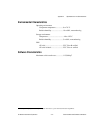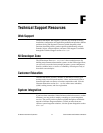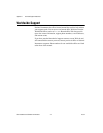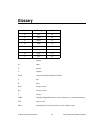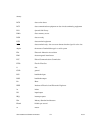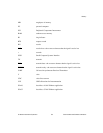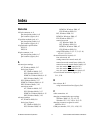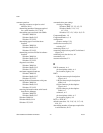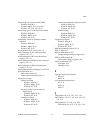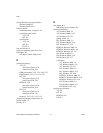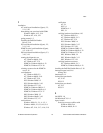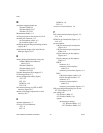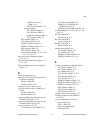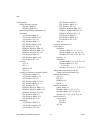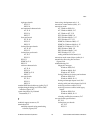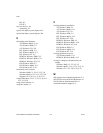Index
Serial Hardware and Software for Windows I-4 ni.com
forcing Windows to detect hardware
Windows 2000, D-2
Windows Me/9x,D-11
four-port boards
connecting cables to (figure), A-5
isolated four-port boards
AT, E-10
PCI, E-2
specifications
AT, E-10
PCI, E-2
PXI, E-5
four-wire mode, 6-2
freeing an interrupt request level, D-6
full duplex, B-3
full-duplex system (figure), B-4
G
general port settings
AT, 5-23
dialog box (figure), 5-23
transceiver mode, 5-23
COM port number, 2-22, 3-21, 4-20, 5-23
FIFO enabled, 2-22, 3-21, 4-21, 5-24
PCI, 2-22
dialog box (figure), 2-22
transceiver mode, 2-22
PCMCIA, 4-20
dialog box (figure), 4-20
transceiver mode, 4-20
PXI, 3-21
dialog box (figure), 3-21
transceiver mode, 3-21
resources, 2-23, 3-22, 4-21, 5-24
general programming requirements, 6-1
getting started, 1-2
glossary, G-1
H
half duplex, B-4
half-duplex system (figure), B-4
hardware installation
AT, Windows 2000, 5-2
AT, Windows Me/9x,5-10
AT, Windows NT, 5-19
getting started, 1-2
PCI, Windows 2000, 2-2
PCI, Windows Me/9x,2-10
PCI, Windows NT, 2-18
PCMCIA, Windows 2000, 4-2
PCMCIA, Windows Me/9x,4-9
PCMCIA, Windows NT, 4-17
PXI, Windows 2000, 3-2
PXI, Windows Me/9x,3-10
PXI, Windows NT, 3-17
verification
AT, Windows 2000, 5-4
AT, Windows Me/9x,5-12
AT, Windows NT, 5-21
PCI, Windows 2000, 2-4
PCI, Windows Me/9x,2-12
PCI, Windows NT, 2-20
PCMCIA, Windows 2000, 4-3
PCMCIA, Windows Me/9x,4-10
PCMCIA, Windows NT, 4-18
PXI, Windows 2000, 3-4
PXI, Windows Me/9x,3-11
PXI, Windows NT, 3-19
hardware specifications
AT, E-9
PCI, E-1
PCMCIA, E-8
PXI, E-5



